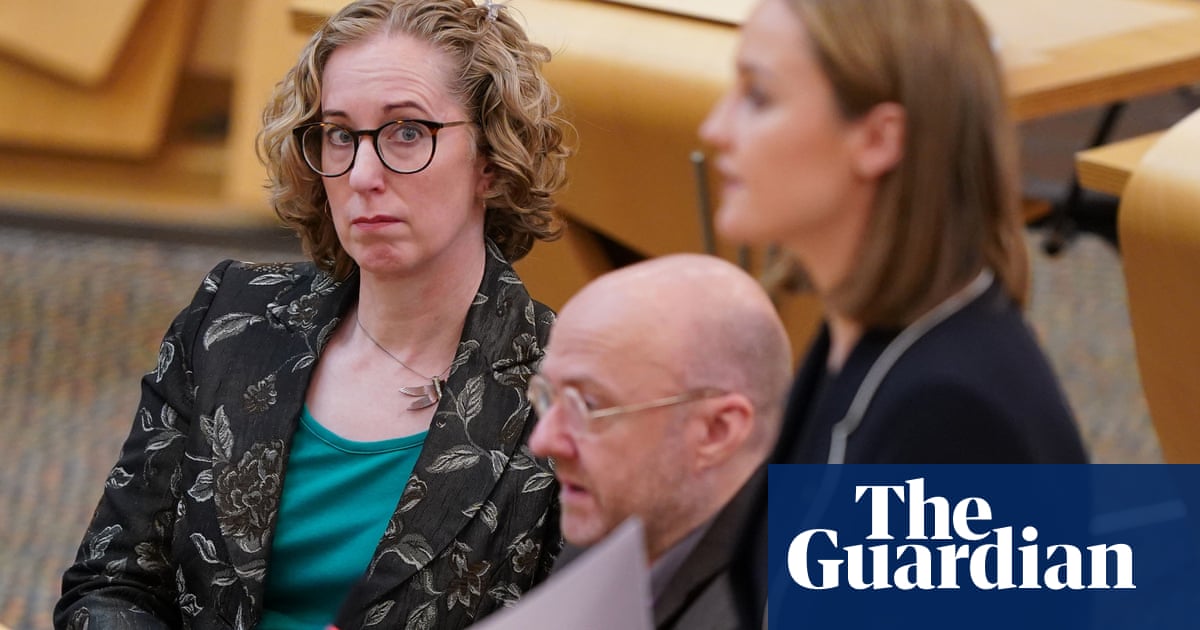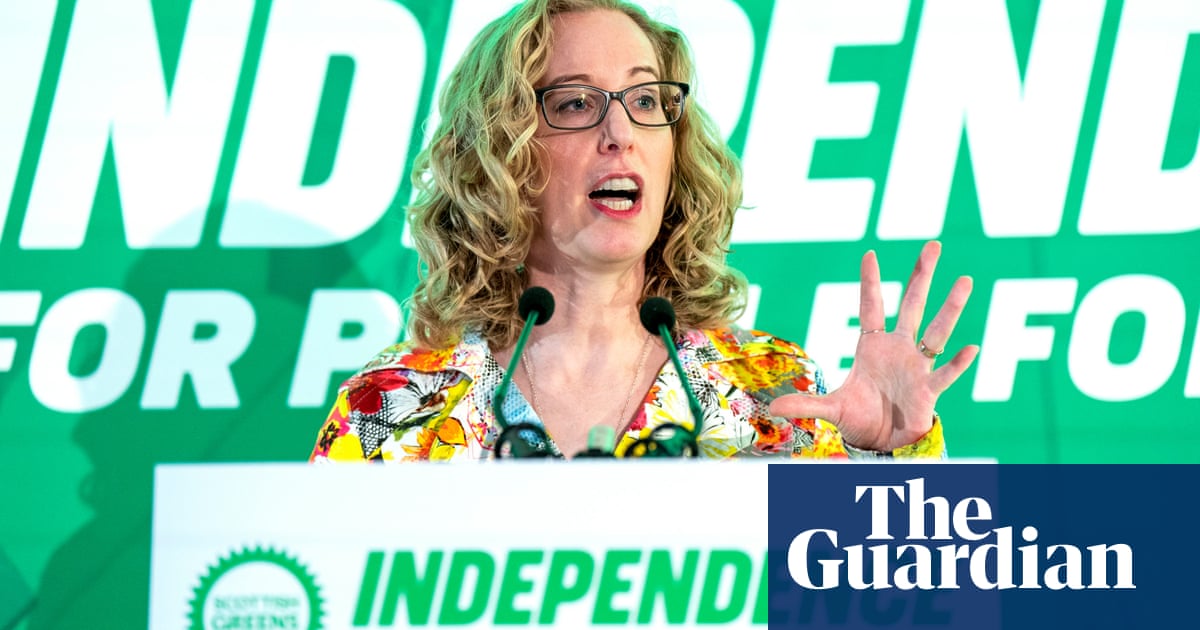
A deep split has emerged between the SNP and its coalition partners, the Scottish Greens, over Nicola Sturgeon’s decision to back the foundation of low-tax freeports in Scotland.
The Scottish government signed a £52m deal with the UK government to approve two low-regulation freeports in Scotland just as Boris Johnson arrived on Monday at Rosyth in Fife, an industrial site expected to bid to host one.
Ross Greer, the Scottish Greens’ finance spokesperson, said his party would have nothing to do with the schemes, in the first major split with the SNP since they struck a cooperation deal last August. That deal excluded freeports.
Speaking on BBC Radio Scotland, Greer said claims from Scottish ministers that the two projects would prioritise green, low-carbon ambitions and promote the living wage were “greenwash”.
“There’s nothing genuinely green about them,” he said. “What freeports are are a really effective way to give tax relief and to throw public money at multinational companies who are already doing their best to avoid tax.
“The last time the UK had freeports, according to the UK government they only created a quarter of the jobs that were promised, and that was at huge public expense. Internationally, freeports are associated with crime, money laundering, smuggling, low wages.”
The Scottish government’s decision to support the freeports, initially described as a “tarnished brand” by one SNP minister, Ivan McKee, is regarded as a significant coup within the UK government.
Johnson visited Rosyth and Edinburgh on Monday morning before flying to north-west England as part of a tour to promote his widely criticised levelling up investment agenda.
His visit was a rebuff to near-universal demands in January from Scottish Tory MSPs and the Scottish party leader, Douglas Ross, that Johnson resign over the Downing Street parties scandal. Johnson will not meet any Scottish colleagues during his visit.
Whitehall officials said the freeports proposal had gathered such significant support from Scottish ports and business leaders that Sturgeon had been forced to reluctantly abandon her initial opposition to the schemes.
Speaking at Rosyth, Johnson applauded her decision. “If you look at the attitude of the Scottish government, it has been fantastic,” he said. “I think they have really got the point and they can see the advantages of the freeports.”
A number of port operators are expected to bid, including Cromarty, north of Inverness; Forth Ports, which is likely to include Grangemouth, Rosyth and Leith ports; a joint bid from Aberdeen, Aberdeen airport and Peterhead; Cairnryan, a ferry port that links Northern Ireland to Scotland; and Clydeport.
The freeports model was also denounced by SNP members at a party conference, but Kate Forbes, the Scottish finance secretary, took a more pragmatic approach to the proposals and succeeded in doubling the UK government’s funding.
Michael Gove, the UK’s levelling up minister, agreed to fund the startup costs for both projects, instead of one as the Treasury originally proposed. While that reducescosts for the Scottish government, it will still lose business rate revenues and land and building sales taxes at the sites.
Forbes told the BBC her government had won other concessions, including an equal say with UK ministers on how the freeports are run. Scottish ministers would not approve bids that failed to put forward fair work and “robust” low-carbon schemes, she said.
Forbes, who confirmed some bids would come from her constituency, declined to state that applicants would be legally forced to adopt them after winning a bid, but insisted the Scottish schemes would be fairer than England’s.
“The bidder will not win without that robust decarbonisation plans. [We] will not support, for example, an economic initiative like this unless it helps shift the dial on net zero,” she said.












